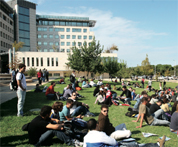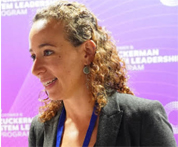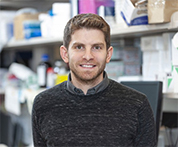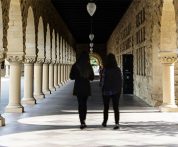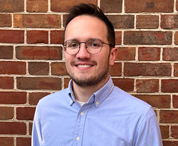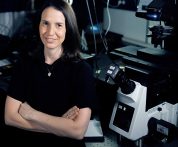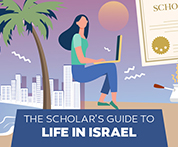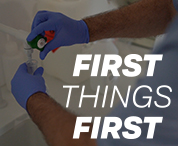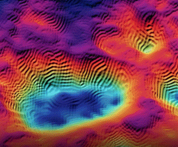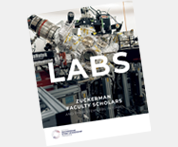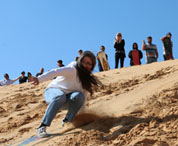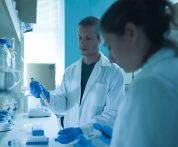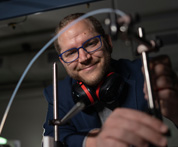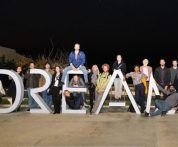Since 2018, 32% of Zuckerman Faculty Scholars have been awarded prestigious ERC grants totaling $22,590,000M
A total of fifteen Zuckerman Faculty Scholars have received ERC grants, including one ERC Consolidator Grant and fourteen ERC Starting Grants. The grants distinguish these scholars for their innovative research, leadership, and overall excellence.
ERC grants are awarded annually through open competition to starting and established researchers, with scientific excellence being the sole criterion. It is considered the most prestigious science award in Europe.
Being selected for an ERC Frontier Research Grant brings a level of status and recognition that says, “Pay attention to this researcher,” an impressive achievement for the Zuckerman program’s first seven years.
Israel ranks number two in the world for the total of ERC grants won by scientists
According to the ERC, between 2007 and 2021, Israel had the second-highest number of ERC grant recipients, a reflection of Israel’s continued commitment to excellence in academic research. We are proud of the Zuckerman Faculty Scholars who have contributed to that number.
Zuckerman Faculty Scholar ERC Grant Recipients (2018 – 2023)
2023
- Dr. Dekel Rosenfeld, Associate Professor, Department of Biomedical Engineering, Faculty of Engineering at Tel Aviv University
Grant award: €1.5 M
The Rosenfeld Lab develops magnetic functional materials to interact with electrogenic cells for neuromodulation and control over peripheral organ function. These tools allow remote control on calcium-dependent processes via activation of ion channels such as heat sensitive ion channels. It provides spatial and temporal resolution in a minimally invasive procedure demonstrated both in vitro and in vivo. They developed a novel approach to control the release of adrenal stress hormones to treat hormonal imbalance in mental health disorders such as post trauma stress disorder.
The lab’s ultimate goals are developing new tools that advance the biomedical research to repair organ dysfunction and studying the organ-brain communication in health and disease.
- Prof. Yoav Shechtman, Department of Biomedical Engineering, Technion – Israel Institute of Technology
Grant award: €150,000
The ERC special grant award is intended to promote the translation of academic research into application and commercialization, including the establishment of the start-up company. This grant is only given to researchers who have already won ERC grants in the past.
The grant was given for the development of a sensitive measurement of protein concentration using computational microscopy. The researchers developed a simple and fast method for measuring the concentration of certain proteins from body fluid samples, for example blood.
The method is based on a microscope with the addition of an optical component designed in Prof. Shechtman’s laboratory, which observes fluorescent particles (phosphorus) that adhere to the protein being studied using antibodies. The filmed videos are processed on a computer and the protein concentration is algorithmically extracted.
This method is in the testing stages for monitoring proteins of the immune system in treated cancer patients, for the purpose of early detection of side effects, with the aim of enabling preventive treatment, in collaboration with the Rambam Medical College.
- Dr. Yaara Oren, Assistant Professor at Tel Aviv University
Grant award: €1.5 M
The Oren Lab focuses on the study of a rare subpopulation of cancer cells, called persister cells, that can evade therapy through a non-mutational reversible mechanism. The lab combines clinical data, experimental and computational approaches to uncover the basic biology underlying the ability of cells to survive drug onslaught in the absence of a resistance-mediating genetic alteration. They develop new tools and systems to study reversible resistance in hope to pave the way for new therapeutic approaches that could prevent the emergence of genetic resistance.
- Dr. Neta Shlezinger, Assistant Professor at Hebrew University of Jerusalem
Grant award: €1.7 M
The Shlezinger Lab studies fungal pathogenesis and immune responses and uses a multidisciplinary approach to address two broad questions: what are the mechanisms that enable fungi to overcome immune surveillance and cause infectious diseases and, conversely, how the host immune response can protect against fungal pathogens. The projects in the lab address common questions in pathogenesis and immunology at the molecular, cellular and whole-organism level. One of their main research projects focuses on viruses of fungi (mycoviruses). Mycoviruses have been implicated in modified fungal virulence, but our knowledge of the underlying mechanisms is scarce. They recently published an opinion article on this project, which is pending an ERC starting grant (reserve list 2022). The lab generates functional reporters of fungal physiology and applies cross-disciplinary techniques to monitor the outcome of individual fungal cell-host encounters within the complexities of an in vivo environment.
2022
- Dr. Adi Ashkenazi, Zuckerman Israeli Postdoctoral Scholar alum (2017-2018), and Senior Lecturer at Tel Aviv University’s School of Physics and Astronomy
Grant award: €1.5 M
The neutrino lab focuses on estimating the impact of nuclear effects in neutrino experiments, coordinating an effort to leverage electron scattering data to benchmark models and improve neutrino event generators. The neutrino lab plans to produce a series of novel measurements that will improve current models used for neutrino interaction simulations to support the needs of the future DUNE experiment for oscillation precision measurements and New Physics searches.
- Dr. Itamar Harel, Associate Professor at Hebrew University’s Department of Genetics
Grant award: €1.5 M
Harel Lab explores the experimental biology of vertebrate aging and age-related diseases in an attempt to identify the molecular basis behind the outstanding lifespan diversity between different animals, and discover what separates disease from healthy aging. The lab employs cutting-edge techniques to develop a variety of disease models, including single-cell technology, mass spectrometry, and genome editing
- Dr. Michal Ramot, Associate Professor at Weizmann Institute of Science’s Department of Neurobiology
Grant award: €1.66 M
Ramot Lab explores how different large-scale neural networks in the human brain, which integrate various cognitive domains, give rise to particular behaviors. The lab aims to develop the field of neurofeedback in the direction of clinical application and help clinicians to verify the causes of aberrant networks, and even to provide methods for rewiring brain networks to modulate neurological and psychiatric conditions and potentially enhance brain functions such as memory, learning, and perception.
- Dr. Hadas Soifer, Associate Professor at Tel Aviv University’s School of Physics and Astronomy
Grant award: €1.8 M
Hadas Soifer Lab explores the possibilities of nonlinear optical phenomena in quantum materials to enable a better understanding of the coupling of light to topological band structures. It focuses in particular on photocurrent generation – where light absorbed in the material induces a current flow – which is of special promise for paving the way to optical quantum control of currents in devices and of interest from a spectroscopic point of view, enabling a better understanding of the coupling of light to topological band structures.
2021
- Dr. Gili Bisker, Tel Aviv University’s Department of Biomedical Engineering
Grant Award: €1.5 M
The Bisker Lab develops optical nano-sensors using optically active nanoparticles to analyze living systems, which provide both spatial and temporal information about biomolecular targets at the nanoscale. Dr. Bisker’s tools can enable long-term monitoring and imaging of biological samples, opening new opportunities for diagnostics and treatment.
- Dr. Itay Tirosh, Weizmann Institute of Science, Department of Molecular Cell Biology
Grant award: €2 M
The Tirosh Lab combines computational and experimental methods to study human tumors as a complex ecosystem in which diverse cancer and non-cancer cells interact and collectively determine tumor biology and response to therapies. The lab leverages single cell technologies, computational approaches, and clinical collaborations to analyze the diversity of cells within human tumors, and focuses on identifying important tumor subpopulations, such as cancer stem cells, drug resistant cells, invasive cells and immune cells that respond to immunotherapies. The researchers study cell function, regulation and vulnerabilities, with the ultimate goal of developing better cancer treatments.
2020
- Dr. Ido Goldstein, The Hebrew University, Institute of Biochemistry, Food Science and Nutrition at the Robert H. Smith Faculty of Agriculture, Food and Environment
Grant Award: €1.5 M
The Ido Goldstein Lab for Nutrigenomics, Liver Biology and Gene Expression researches the body’s response to periodic fasting, and explores ways to harness its benefits, which may extend to diseases such as diabetes, obesity, cancer, and Alzheimer’s. The lab investigates how liver cells program the expression of different genes in response to altered nutrition; how these programs are derailed in disease, and how we can re-establish them to restore health.
- Dr. Moran Shalev-Benami, Weizmann Institute of Science
Grant Award: €1.49 M
The Shalev-Benami Lab focuses on visualizing the complex architectures of macromolecular assemblies, with the aim of learning how their complicated structures contribute to their ability to mediate cellular functions. Researchers use a combination of structural, biophysical and biochemical techniques with an emphasis on high-resolution electron cryo- microscopy (cryo-EM).
2019
- Dr. Omri Wurtzel, Associate Professor, Tel Aviv University, School of Neurobiology, Biochemistry and Biophysics; affiliated with the Edmond J. Safra Center for Bioinformatics and the Sagol School of Neuroscience
Grant Award: €1.49 M
The Wurzel Lab for Regeneration and Stem Cell Biology studies the process of regrowing missing tissues. Following an injury, regenerative organisms activate molecular and cellular processes that lead to the formation of new tissues. The lab uses organisms that regenerate extremely quickly, working extensively with flatworms that can regrow any missing part of their bodies – including their brain – in less than a week.
2018
- Dr. Danny Ben-Zvi, Assistant Professor, The Hebrew University of Jerusalem-Hadassah Medical School
Grant Award: €1.5M
The Ben-Zvi Lab focuses on understanding how bariatric (weight loss) surgery impacts all systems in the body, with the goal of discovering how to achieve its positive effects without surgical intervention, potentially leading to a cure for type-2 diabetes, and reversing obesity.
- Dr. Yoav Shechtman, Associate Professor, Department of Biomedical Engineering, Technion – Israel Institute of Technology
Grant Award: €1.8M
Dr. Shechtman’s Nano-Bio Optics Lab develops novel microscopy tools that are applied to some of the most challenging imaging applications in biology, trying to observe life on the nanoscale. The lab’s interdisciplinary research encompasses biomedical engineering, optics, and biology; and develops both hardware and software tools to precisely track different sources on the nanoscale in three dimensions.
 ISRAELI COUNCIL FOR HIGHER EDUCATION
ISRAELI COUNCIL FOR HIGHER EDUCATION MIT-Israel Zuckerman STEM Fund for Faculty Collaboration
MIT-Israel Zuckerman STEM Fund for Faculty Collaboration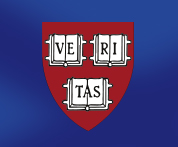 The Zuckerman Travel and Research STEM Fund at Harvard
The Zuckerman Travel and Research STEM Fund at Harvard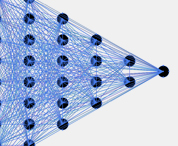 Zuckerman AI Fund at Technion
Zuckerman AI Fund at Technion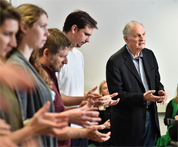 Alan Alda Communicating Science
Alan Alda Communicating Science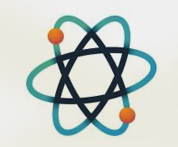 Zuckerman Institute – ScienceAbroad
Zuckerman Institute – ScienceAbroad Zuckerman Institute – America-Israel Friendship League partnership
Zuckerman Institute – America-Israel Friendship League partnership



